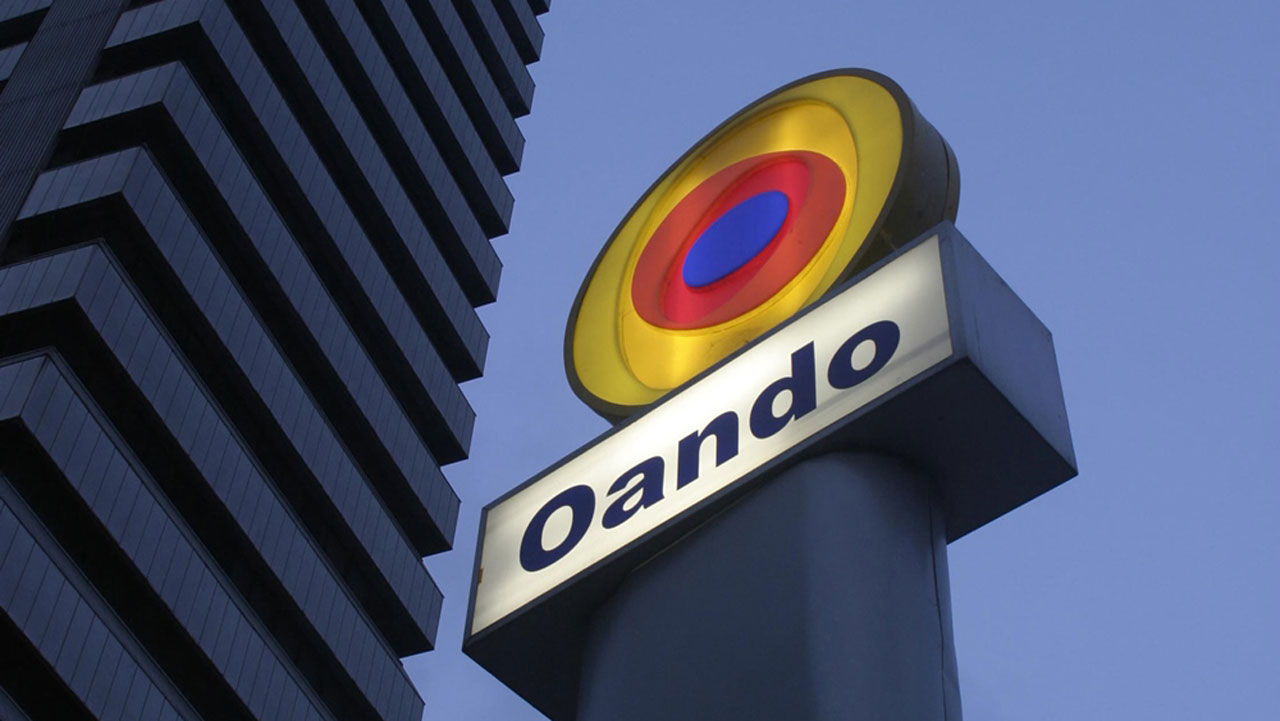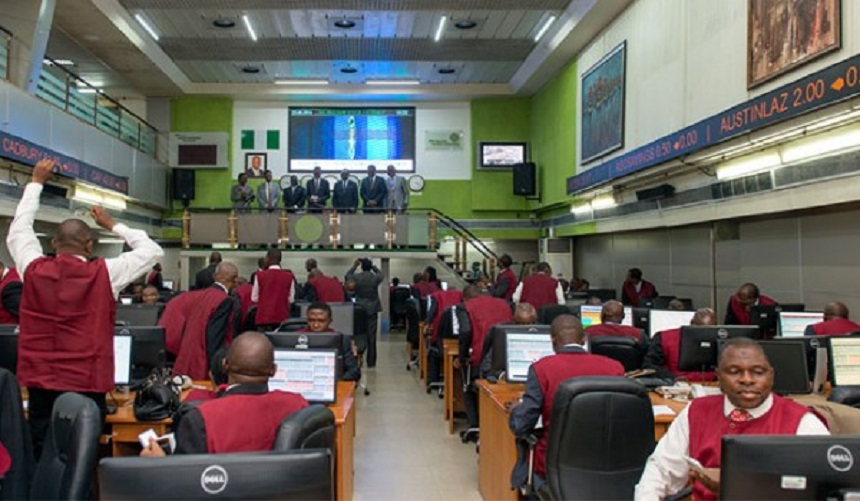Economy
Reps Order SEC to Complete Oando Probe in 2 Weeks

By Dipo Olowookere
The Securities and Exchange Commission (SEC) has been given two weeks to complete its investigations into petitions against one of the leading oil and gas firms in Nigeria, Oando Plc.
On Tuesday, the House of Representatives Committee on Capital Market and Institutions held a closed door meeting with the Director-General of SEC, Mr Mounir Gwarzo, on the matter.
Recall that Ansbury Inc. and Mangal wrote petitions to the capital market regulator, alleging the board of Oando Plc led by Mr Wale Tinubu, of gross financial misconduct.
The two parties had earlier wanted SEC to stop the 40th Annual General Meeting (AGM) of the firm, but the regulator, after a panel report, said it found no reason to suspend the AGM.
The meeting eventually held in Uyo, Akwa Ibom on Monday, September 11, 2017, and shareholders voted to retain Mr Tinubu as Group Chief Executive.
After yesterday’s closed door meeting, Deputy Chairman of the House Committee on Capital Market and Institutions, Mr Tony Nwulu, informed newsmen that SEC has been given a two-week ultimatum to close out its investigations on Oando and report back to it.
“We just finished our meeting. SEC has set up a committee to look into the ongoing issues. We believe that the committee will come up with their recommendations.
“The House Committee on Capital Market has given them two weeks to come up with that report,” the lawmaker said.
At the start of the hearing, the Committee Chairman asked that all media and other third parties to step out of the room to allow the ongoing enquiry be discussed in private with the DG of the SEC.
The strict timeline that the Committee has given for the enquiry to be concluded is another positive as this case has dragged on for nearly five months and played out in the media for three months, in that time Oando shareholders have seen a significant loss in the value of their shares.
Meanwhile, some shareholders of Oando Plc have expressed satisfaction with the latest development.
According to an anonymous shareholder, who was hoping to sit in on the hearing, “I am hopeful that this new development will help resolve the issue in favour of all shareholders of the company, as we all want to see a conclusion that is in the interests of both we the shareholders and the future of the company.’’
It was gathered that some people claiming to be shareholders of the company attempted to protest outside the National Assembly complex but they were advised to utilize the formal process for making complaints to the House Committee.
Economy
Crude Oil Down on Steady US Energy Demand Forecast

By Adedapo Adesanya
Crude oil went down on Tuesday after a projection showed steady demand in the world’s largest oil producer, the United States, for 2025, Brent futures declining by $1.09 or 1.35 per cent to settle at $79.92 a barrel and the US West Texas Intermediate (WTI) crude losing $1.32 or 1.67 per cent to finish at $77.50 a barrel.
On Tuesday, the US Energy Information Administration said the country’s oil demand would remain steady at 20.5 million barrels per day in 2025 and 2026, with domestic oil output rising to 13.55 million barrels per day, an increase from the agency’s previous forecast of 13.52 million barrels per day for this year.
Also, the oil market shrank a few days after prices gained following new US sanctions on Russian oil exports to India and China.
On Monday, prices jumped 2 per cent after the US Treasury Department on Friday imposed sanctions on Gazprom Neft and Surgutneftegas as well as 183 vessels that transport oil as part of Russia’s so-called shadow fleet of tankers.
Analysts say this move could have a significant price impact on Russian oil supplies from the fresh sanctions, however, their effect on the physical market could be less pronounced than what the affected volumes might suggest.
ING analysts estimated the new sanctions had the potential to erase the entire 700,000 barrels per day surplus they had forecast for this year, but said the real impact could be lower.
Uncertainty about demand from China, the world’s largest oil importer, could impact tighter supply this year.
China’s crude oil imports fell in 2024 for the first time in two decades outside of the COVID-19 pandemic, official data showed on Monday.
Meanwhile, the American Petroleum Institute (API) estimated that crude oil inventories in the US fell by 2.6 million barrels for the week ending January 10.
For the week prior, the API reported a draw of 4.022 million barrels in US crude oil inventories amid build season, while product inventories saw a hefty build.
In 2024, crude oil inventories dropped by more than 12 million barrels, according to the API’s inventory data. In the first few weeks of 2025, crude inventories have shed more than 6.6 million barrels.
Official data from the US EIA will be due later on Wednesday, confirming the actual level of stockpiles.
Economy
Stock Exchange Suffers Heavy Loss as Investors Pull Out N1.1trn

By Dipo Olowookere
The Nigerian Exchange (NGX) Limited came under heavy selling pressure on Tuesday, going down by 1.66 per cent as investors embarked on profit-taking after most stocks on the trading platform gained in the past few trading sessions.
It was observed that the industrial goods sector was the most affected yesterday as it went down by 4.99 per cent due to the decline suffered by Dangote Cement and others.
The insurance continued its downward trend during the day as it lost 2.80 per cent, the consumer goods counter fell by 0.27 per cent, and the banking index shed 0.10 per cent, while the energy sector appreciated by 0.29 per cent.
At the close of business, the All-Share Index (ASI) deflated by 1,745.16 points to settle at 103,622.09 points compared with the previous trading day’s 105,367.25 points and the market capitalisation moderated by N1.1 trillion to finish at N63.188 trillion versus Monday’s N64.252 trillion.
Business Post reports that investor sentiment remained weak on Tuesday after the bourse ended with 41 depreciating equities and 23 appreciating equities, representing a negative market breadth index.
Honeywell Flour lost 10.00 per cent to trade at N9.54, Dangote Cement declined by 9.98 per cent to N431.00, Julius Berger crashed by 9.98 per cent to N139.80, Sovereign Trust Insurance decreased by 9.68 per cent to N1.12, and Prestige Assurance tumbled by 9.30 per cent to N1.17.
On the flip side, Northern Nigerian Flour Mills appreciated by 10.00 per cent to N45.10, Livestock Feeds grew by 9.91 per cent to N6.10, Academy Press expanded by 9.90 per cent to N3.22, University Press increased by 9.82 per cent to N4.81, and Neimeth gained 9.76 per cent to quote at N3.15.
During the session, market participants bought and sold 503.3 million shares valued at N12.6 billion in 12,900 deals compared with the 505.8 million shares worth N8.1 billion traded in 14,259 deals a day earlier, indicating a rise in the trading value by 55.56 per cent and a drop in the trading volume and number of deals by 0.49 per cent and 9.53 per cent, respectively.
The most active stock for the session was GTCO with 54.4 million units worth N3.2 billion, Nigerian Breweries transacted 32.2 million units for N1.0 billion, Universal Insurance traded 30.8 million units valued at N22.6 million, AIICO Insurance exchanged 26.6 million units worth N47.2 million, and Chams transacted 20.0 million units valued at N40.9 million.
Economy
FG Offers 18% Interest on Savings Bonds

By Adedapo Adesanya
The federal government is offering two new savings bonds with interest rates between 17 and 18 per cent through the Debt Management Office (DMO).
In a statement by the agency, the country said retail investors can purchase the two-year bond maturing in January 2027 at 17.23 per cent interest, while the three-year paper maturing in January 2028 at a coupon rate of 18.23 per cent.
Bonds are very safe financial instrument that serve as investments because they are backed by the federal government, which promises to pay back the money.
According to the DMO, people can buy these bonds starting January 13, 2025, until January 17, 2025, with allotment expected on January 22, 2025, and the interest to be paid to investors every three months – in April, July, October, and January.
These bonds have some special features. They are tax-free under both company and personal tax laws.
Big investors like pension funds and trustees are allowed to buy them and each bond costs N1,000 each.
However, interested investor can only buy at least N5,000 worth, and can’t buy more than N50 million.
This comes after the Ms Patience Oniha-led debt office said the Nigerian government was offering three bonds worth N150 billion in September 2024.
-

 Feature/OPED5 years ago
Feature/OPED5 years agoDavos was Different this year
-
Travel/Tourism8 years ago
Lagos Seals Western Lodge Hotel In Ikorodu
-

 Showbiz2 years ago
Showbiz2 years agoEstranged Lover Releases Videos of Empress Njamah Bathing
-

 Banking7 years ago
Banking7 years agoSort Codes of GTBank Branches in Nigeria
-

 Economy2 years ago
Economy2 years agoSubsidy Removal: CNG at N130 Per Litre Cheaper Than Petrol—IPMAN
-

 Banking2 years ago
Banking2 years agoFirst Bank Announces Planned Downtime
-

 Sports2 years ago
Sports2 years agoHighest Paid Nigerian Footballer – How Much Do Nigerian Footballers Earn
-

 Technology4 years ago
Technology4 years agoHow To Link Your MTN, Airtel, Glo, 9mobile Lines to NIN


















